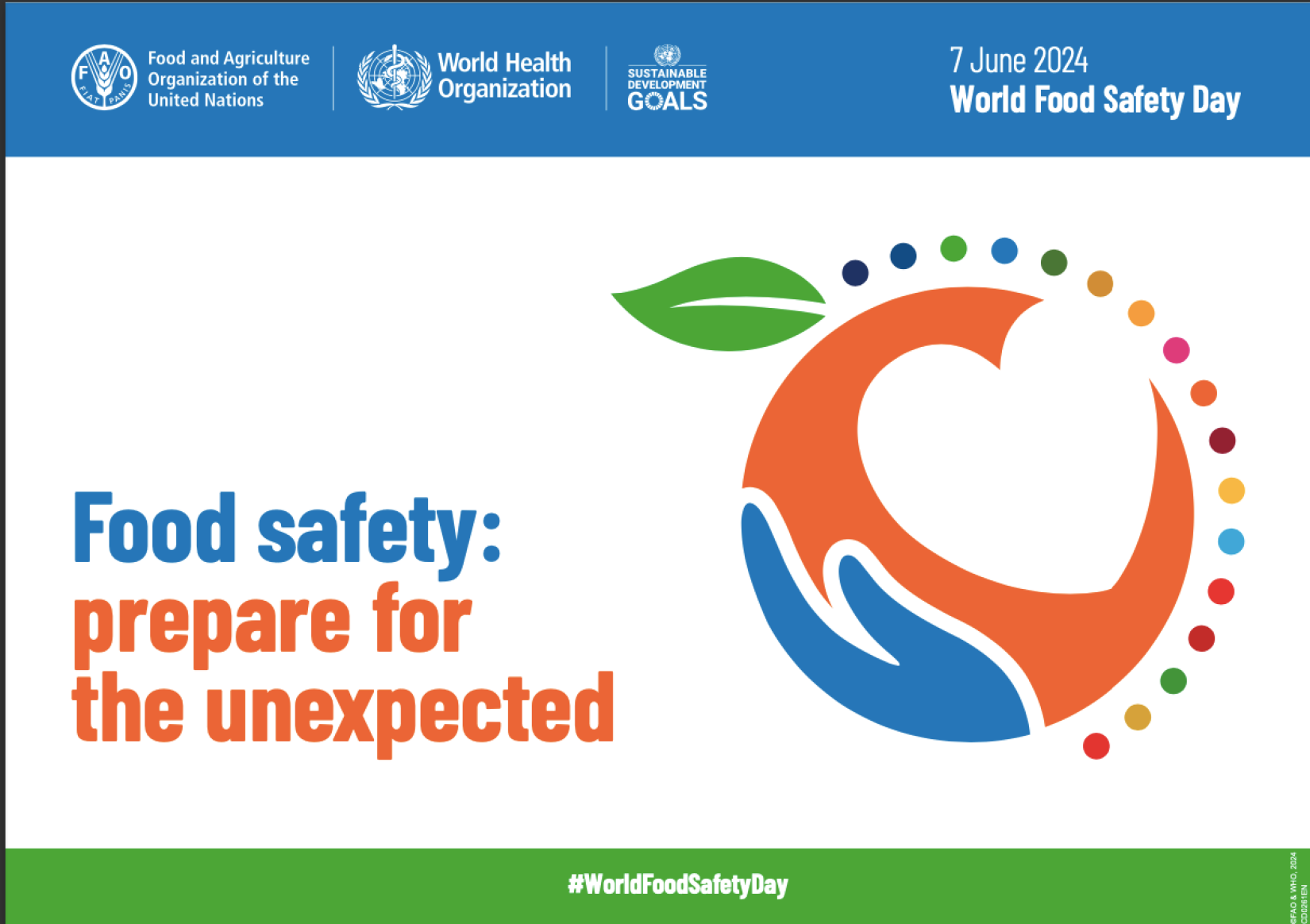Ready, Set, Safe: World Food Safety Day 2024-Prepare for the Unexpected
07 հունիսի 2024
7 June 2024, Yerevan, Armenia — The Food and Agriculture Organization of the United Nations (FAO) and the World Health Organization (WHO) jointly with key partners in Armenia observes the World Food Safety Day under the theme "Prepare for the Unexpected."

The Food and Agriculture Organization of the United Nations (FAO) and the World Health Organization (WHO) jointly with key partners in Armenia observes the World Food Safety Day under the theme " Prepare for the Unexpected." This year's theme emphasizes the importance of readiness for unforeseen food safety incidents, ranging from minor local events to major international crises.
Every year, approximately 600 million people worldwide suffer from around 200 different types of foodborne illnesses, with 420,000 preventable deaths, the burden falling most heavily on the poor and young. Ensuring food safety is not only critical to food security but also vital in reducing foodborne diseases, which disproportionately affect vulnerable populations. In light of the recent flooding in Armenia, the urgency of preparing for unexpected events that threaten food safety has never been more apparent. Floods in Lori and Tavush contaminated water supplies and food sources, exacerbating the risk of foodborne illnesses and highlighting the need for robust food safety measures in Armenia.
Every year, World Food Safety Day serves as a crucial reminder that food safety is a collective responsibility. On this day, we highlight that while everyone from producers to consumers must play their part to ensure the food on our plates is safe, there are situations where the unexpected intervenes. Preparedness is of paramount importance, especially when there is a risk of natural disasters. While other threats like power outages, food poisoning, and imported product outbreaks are also concerning, there is always something we can do to prevent illness. In our interconnected global food supply chain, food safety hazards can quickly escalate from a local issue to an international emergency.
Ensuring food safety is one of the important and urgent priorities of every country and Armenia is not an exception. The development and improvement of food safety policies in order to ensure the health of consumers is one of the government priorities in the Republic of Armenia. Armenia has made significant strides in improving food safety through adherence to globally recommended standards. As part of worldwide celebrations, Armenia will also honor individuals and organizations that have made outstanding contributions to the food safety. This recognition underscores the importance of collective efforts and the impact of dedicated work in ensuring the safety of food systems.
FAO and WHO teams in Armenia have jointly promoted the multisectoral One Health approach and supported Armenia’s commitments to developing and updating national food safety emergency response plans. Commitment of the Government of Armenia reflected in strengthening national scientific, analytical, and technical capacities in risk analysis, early warning systems for food safety, and response to food safety emergencies which was supported by FAO. Whereas, WHO played a critical role in supporting the Government of Armenia in implementation of the Joint External Evaluation (JEE) – a multisectoral assessment of country capacities to prevent, detect and rapidly respond to public health risks. The JEE helped the country identify the gaps within human and animal health systems and provided the Government with recommendations including those related to food safety and AMR. JEE findings, will provide guidance for developing the National Action Plan for Health Security.
Furthermore, FAO and WHO worked hand in hand with Armenia over many years for enhancing the policy framework and bolstering the capacity of national laboratories and related infrastructure for collecting and sharing data on the detection of antimicrobial resistance (AMR) and antimicrobial residues and supported the development of national strategy and its multi-sectoral action plan to prevent and control spread of AMR in Armenia.
Key Facts and Figures:
• One in ten people worldwide falls ill from contaminated food each year, affecting all countries. Over 200 diseases are caused by eating food contaminated with bacteria, viruses, parasites, or chemical substances such as heavy metals.
• Children under 5 make up 9% of the population but carry 40% of the foodborne disease burden.
• Food safety standards protect the lives of all and the livelihoods of many, establishing criteria that food should meet to protect consumers and build confidence in the product.
• The Codex Alimentarius Commission has been setting international food standards for 60 years. The Codex Alimentarius, or "Food Code," is a collection of standards, guidelines, and codes of practice adopted by the Commission, established by FAO and WHO.





